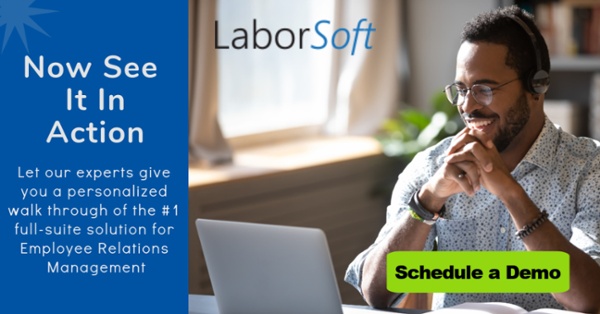Labor Relations | COVID19 | Remote/Hybrid Workforce
What Unions Need to Know as Employees Return to Work
Read Time 3 mins | Sep 28, 2020 | Written by: Frankie Kourtis

Employers face a mountain of concerns and issues to overcome when planning a full-scale return to work for their employees. However, for those with unionized workforces, there is an extra layer of difficulty including the need to heed collective bargaining agreements (CBAs) and consult the National Labor Relations Act (NLRA) as employees stage their return. Considering that CDC guidelines shift from day to day and recommendations change constantly in the throes of this global pandemic, many employers will be bargaining with trade unions to implement changes to their workplace policies.
Re-Union
Many companies have already begun or stand on the precipice of in-office or in-person reunions, when their workforces come back to the office, in late 2020 or early 2021. With this projection looming, employers and HR are diligently plotting their plans NOW to have the bulk of their employees return safely to a shared space on a regular schedule or basis. Thus, unions have been sending employers detailed information regarding COVID-19 planning, most notably in the healthcare industry. Unions are also requesting mandatory data from companies concerning employee absenteeism, data on infectious disease diagnoses, workplace exposure rates, and safety provisions.
It is important to note that under the NLRA, employers have a legal duty to bargain in good faith over employee wages, hours, sick leave/paid time off, layoffs, safety protocols, etc. In fact, many CBAs have provisions allowing employers to take unilateral action on these issues. However, if a CBA does not expressly grant the employer the right to implement needed policies, they must promptly give the Union notice of the planned changes with ample notice and an opportunity to bargain. In any case, the Union has the upper hand since employers cannot deal directly with employees regarding changes to their schedules or the amount of work hours when altering schedules due to COVID-19.
Laying the Ground-Work for Layoffs or Refusal to Work
In this economic climate where so many companies are suffering and are not able to retain the same amount of staff due to a slash in revenue, employers and HR may have an obligation to bargain with the union over any layoffs, their timing, and any accompanying effects, including insurance continuation, severance pay benefits, and even bumping rights in a hierarchical organization. Failure to bargain may result in significant financial liability for the company if the Union decides to challenge it.
In the situation of the refusal to work by an employee, the employer should first seek to provide an alternative or reasonable accommodation such as working from home, or apprising them of their right to utilize sick time/PTO as earned, or in some cases, consult other leave-of-absence provisions in the CBA. If accommodations or a compromise cannot be met, the employer may have the ability to terminate or otherwise discipline the employee, depending on whether the employee believes he/she is in “imminent danger” by returning to work. If so, that right is covered under the Occupational Safety and Health Administration's anti-retaliation guidelines, which defies the common notion of "work now and grieve later" in matters of labor law. In addition, if multiple employees cooperatively refuse to come to work, this conduct would likely be considered as "protected and concerted" activity and guaranteed under Section 7 of the NLRA. It is very important that unions adhere to these guidelines and provisions, in addition to other federal or state leave laws that have recently been passed and enacted, such as FMLA or Public Health Emergency Leave and/or Emergency Paid Sick Leave (applicable only to small businesses with “fewer than 500 employees”).
No matter what, it is most important for employers and HR to communicate freely and often with union leadership and to be cognizant of CBA language AND requirements in terms of changing any workplace or employment policies.
-------------------------------------------------------------------
LaborSoft’s innovative technology is one of many integral solutions that keep your business, in business. Our analytics, case management workflows, and our central repository of documentation streamlines case management to mitigate risk of operational bottlenecks, costly lawsuits, and legal ramifications stemming from HR issues and complaints. This sensitive data requires that maximum security protocols are in place and that your information is protected at all times.
Contact us for a customized demonstration and learn how LaborSoft can help you improve communications, build a more collaborative, safe, and supportive workplace, while reducing the likelihood of costly litigation.


